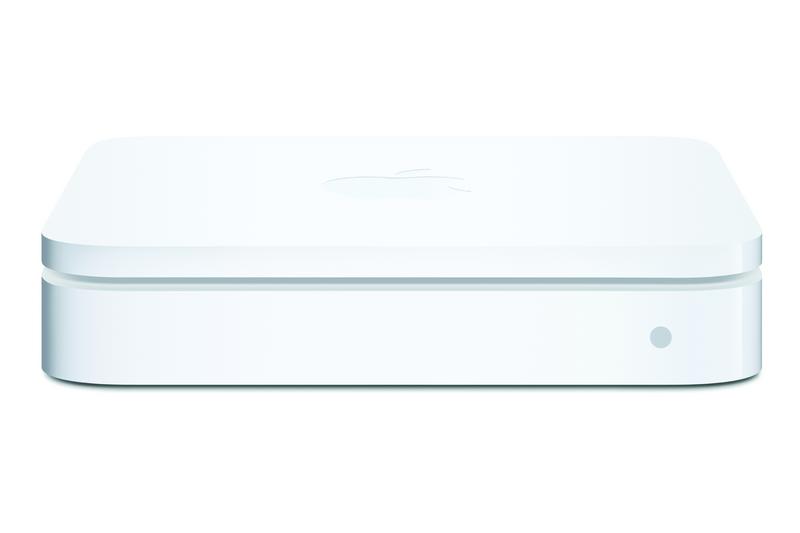Apple AirPort Extreme to include shared drive support
AirPort Disk featur to provide instant wireless network access to USB hard drives.

Apple has quietly added support for sharing USB hard drives across wireless networks to its redesigned AirPort Extreme Wi-Fi router introduced earlier this week.
The AirPort Disk feature turns an external USB hard drive into a shared drive just as soon as it is connected to the base station's USB port. All the files on the drive can instantly become available to all Mac and PC users on the network.
The facility includes options to set the disk to become available whenever you connect to the network and to set up password-protected accounts and restrict access to specified files and folders.
As with previous AirPort hardware - including the still-available AirPort Express - the USB port can also be used to connect and wirelessly share a printer.
Apple has also posted information about AirPort Extreme's support for the 802.11n draft wireless specification. As a result of the technology's multiple-input multiple-output (MIMO) signal processing and smart antenna technique for transmitting multiple data streams through multiple antennae, the new base station offers up to 2.5 times the performance and twice the range of wireless hardware, such as AirPort Express, based on the 802.11g standard.
Those figures differ from 802.11n's purported capabilities: namely a theoretical top speed of 540Mbps that is ten times the maximum for 802.11g and a range of approximately 50m, compared to 30m for the 'g' standard.
Get the ITPro daily newsletter
Sign up today and you will receive a free copy of our Future Focus 2025 report - the leading guidance on AI, cybersecurity and other IT challenges as per 700+ senior executives
-
 Bigger salaries, more burnout: Is the CISO role in crisis?
Bigger salaries, more burnout: Is the CISO role in crisis?In-depth CISOs are more stressed than ever before – but why is this and what can be done?
By Kate O'Flaherty Published
-
 Cheap cyber crime kits can be bought on the dark web for less than $25
Cheap cyber crime kits can be bought on the dark web for less than $25News Research from NordVPN shows phishing kits are now widely available on the dark web and via messaging apps like Telegram, and are often selling for less than $25.
By Emma Woollacott Published